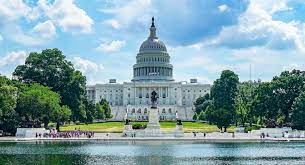
In the ever-evolving landscape of healthcare, medical marijuana has emerged as a controversial yet intriguing topic. While many states have legalized its use for medicinal purposes, a pressing question remains: Why hasn't the Food and Drug Administration (FDA) given its stamp of approval? Let's delve into this complex issue, exploring the intricacies that surround the FDA's position.
Understanding the Food and Drug Administration's Role in Medicinal Approvals
The Gatekeeper of Health: FDA's Primary Function
The Food and Drug Administration plays a pivotal role in safeguarding public health by evaluating and approving medications. However, the path to approval is rigorous, ensuring the safety and efficacy of drugs before they reach the market.
The Challenge of Marijuana's Classification
Caught in a Regulatory Limbo
Marijuana's Schedule I classification, alongside substances like heroin, poses a significant hurdle. This classification implies a high potential for abuse and lack of accepted medical use, creating a paradox for its potential medicinal benefits.
Scientific Dilemmas and Insufficient Research
The Need for Comprehensive Studies
Scientific research on medical marijuana is still in its infancy. Limited clinical trials and data hinder the Food and Drug Administration's ability to make informed decisions, leaving many questions unanswered regarding its long-term effects and interactions.

Patient Safety Concerns
Balancing Risk and Benefit
Ensuring patient safety is paramount for the Food and Drug Administration. The lack of standardized dosages, potential side effects, and interactions with other medications present challenges that need to be addressed before widespread approval.
State-by-State Variances
A Patchwork of Legislation
With varying state laws on medical marijuana, creating a cohesive national framework becomes challenging. The FDA navigates through this intricate web of differing regulations to establish uniform guidelines.
Public Opinion and Stigma
Shifting Perspectives
Addressing the stigma associated with marijuana use is crucial. Public opinion plays a vital role in influencing the FDA's decisions, making it essential to educate the public on the potential benefits and risks associated with medical marijuana.
Industry Pressures and Lobbying
The Business Side of Medicine
Pharmaceutical companies, advocacy groups, and lobbyists exert influence on FDA decisions. Navigating these pressures while maintaining an unbiased stance is a delicate balancing act for the administration.

International Comparisons
Learning from Global Experiences
Analyzing how other countries regulate medical marijuana provides valuable insights. Comparisons with nations that have successfully integrated it into their healthcare systems shed light on potential pathways for the FDA.
The Role of Political Landscape
Policy Shifts and Legislative Influences
Changes in political leadership and legislative priorities impact the FDA's decision-making process. Understanding the broader political context helps unravel the intricacies of medical marijuana approval.
The Future Outlook for Food and Drug Administration
Toward a Comprehensive Framework
Looking ahead, the Food and Drug Administration faces the challenge of adapting to a rapidly changing landscape. As research progresses and attitudes shift, the administration may evolve its stance, potentially paving the way for broader acceptance.

Conclusion
In conclusion, the FDA's cautious approach to approving medical marijuana is rooted in a complex web of scientific, regulatory, and societal factors. As the landscape evolves, finding a balance between patient access and safety remains paramount.
Frequently Asked Questions
- Is medical marijuana legal in all states?
- Yes, but the legality varies. While some states have legalized it for medical use, others haven't.
- Can the FDA change marijuana's classification?
- The FDA doesn't have sole authority; rescheduling involves a collaborative effort with other federal agencies.
- Are there ongoing clinical trials for medical marijuana?
- Yes, but the number is limited. More research is needed to establish its safety and efficacy conclusively.
- How does the FDA assess the safety of medicinal substances?
- Rigorous evaluations, including clinical trials, are conducted to ensure safety before granting approval.
- Could political changes impact medical marijuana approval?
- Yes, shifts in political landscapes can influence the FDA's approach, impacting potential approval decisions.
By addressing these FAQs, we aim to provide clarity on the nuances surrounding medical marijuana and the FDA's intricate decision-making process.
